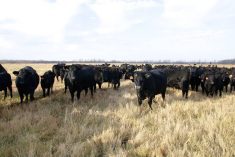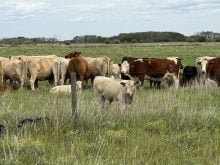A date of July 13 has been set to appeal a Montana court decision to close the United States border to Canadian cattle.
A three judge panel with the U.S. Court of Appeals for the Ninth Circuit in Seattle, Washington will hear oral arguments from the U.S. Department of Agriculture and the National Meat Association against the temporary injunction granted March 2 to R-CALF.
Typically appeal cases from Montana are heard in Seattle, said John Masswohl, director of international relations for the Canadian Cattlemen’s Association.
Read Also

Mixed results on new African swine fever vaccine
The new African swine fever vaccine still has issues, but also gave researchers insight into how virus strain impacts protection against the deadly pig disease.
“We are not expecting a decision then and there,” said Masswohl.
The panel will issue a written decision on whether federal judge Richard Cebull followed the law in granting a temporary injunction against the USDA rule to resume trade with Canada.
“If they rule the injunction was incorrect they could set it aside and the rule would go into effect immediately,” Masswohl said.
That does not necessarily mean cattle younger than 30 months would start crossing the border immediately, because USDA authorities may not be prepared.
“People shouldn’t have any expectations of something wonderful to happen on July 13. They should expect it as a milestone among many milestones,” he said.
While the world animal health organization revised its rules on BSE testing, prevalence and trade sanctions, it is not likely to have any bearing on this hearing, said Masswohl.
“OIE rules should not come into play at this level. But it is hard to predict,” he said.
About 67 consumer, food safety, agricultural and other groups urged the appeals court to keep the U.S. border closed to Canadian cattle imports to protect public health.
The CCIA and Alberta Beef Producers also filed briefs. These could be heard when the case goes back to Billings, Mont., where judge Cebull is being asked for a permanent injunction against all Canadian live animals and meat products.
If that injunction is issued, it could spell disaster for Canada. About 40,000-50,000 tonnes of boneless beef goes to the U.S. each month.
Negotiations are ongoing with Mexico to discuss whether extra Canadian beef could be shipped there via ocean liner if the U.S. border is closed, said Cam Daniels of the Canada Beef Export Federation.
If the injunction is granted, the U.S. is not likely willing to allow overland shipments to Mexico.
“We need our priority markets open,” said Daniels.
Negotiations are also continuing in Asia in hopes markets like Japan and South Korea could return by year end.















